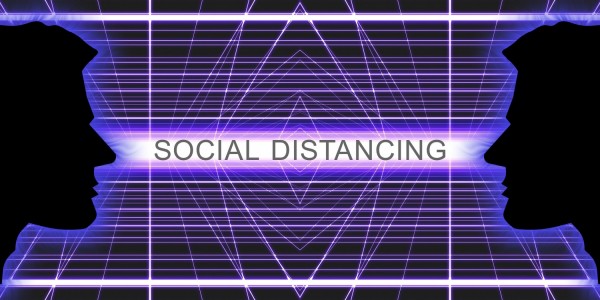New Study Finds Link Between Lower Cognitive Ability and Non-Compliance With Social Distancing Measures

A new study recently presented evidence that working memory is linked to engaging in social distancing in the initial stages of the COVID-19 crisis.
A new study recently presented evidence that working memory is linked to engaging in social distancing in the initial stages of the COVID-19 crisis.
The said new research has recently come out in the Proceedings of the National Academy of Sciences. Relatively, in March this year, the World Health Organization declared the outbreak of COVID-19 as a worldwide pandemic.
Governments across the globe urged the public to follow preventive health protocols like frequent hand-washing and social and physical distancing. Unfortunately, not everyone followed such safety measures.
According to Weizhen Xie, a study author, at this time, successful control of the pandemic crucially depends on the voluntary compliance of people with proper guidelines for social distancing.
Xie also said, since there is widespread non-compliance amongst the public, especially during the first stage of the outbreak, and even more recently following economies' reopening.
ALSO READ: Some Children Likely to Experience Mysterious Brain Damage from COVID-19, Study Finds
Working Memory, Mood and Behavior Assessed
In a couple of studies, the scientists assessed 850 residents in the United States from March 13 to 25, 2020. The assessment took place during the first two weeks of the research after the presidential declaration of a national emergency in the country about the pandemic.
On top of the gathering of demographic data and evaluation of social distancing compliance, the studies included observations of patients' "mood, personality, fluid intelligence, and working memory."
Xie and his fellows in the field found individuals with better working memory capacity were more likely to show that they abided by the guidelines of social distancing like avoiding social gatherings and hand-shaking.
Study co-author Weiwei Zhang said, their findings unveil a "novel cognitive source of social distancing compliance" during the pandemic's early phase.
The researchers discovered too that higher fluid intelligence levels, not to mention agreeableness, were linked to greater compliance to greater physical, social distancing measures.
DON'T MISS THIS: Family Burnout During the Pandemic: How Can We Cope With the Situation?
The Link between Social Distancing and Work Memory
The connection between social distancing and working memory held after controlling for these elements, as well as others.
People who have better working memory capacity tended to look at social distancing too, as having more advantages than costs, were more likely to have an option for impartiality during a so-called "Ultimatum Game," which partly explained the link.
In relation to such a connection, the decision if following social distancing guidelines should be followed or not, is quite tough, especially when a conflict exists between societal advantages and personal costs.
Such a decision, according to Xie, depends on one's mental capacity to retain several pieces of possibly conflicting details in his head, which is referred to as the capacity of working memory.
As with all the studies, this particular research on cognitive ability comes with some warnings. "We expect that the working memory's contribution," Xie explained, will drop as new norms like wearing of mask or physical distancing, among others, are obtained by the American society over time.
The study author also said, their observations are naturally correlational. He added, "It remains to be established" if tactics to disrupt or hold up the "cognitive bottleneck" like translational brain encouragement and training for working memory, could lessen the non-compliance with social distancing measures and alleviate afterward, a public health crisis.
IN CASE YOU MISSED THIS: Repurposing Antibiotics Can Help Treat Depression, Study Finds
Jul 13, 2020 09:50 AM EDT





